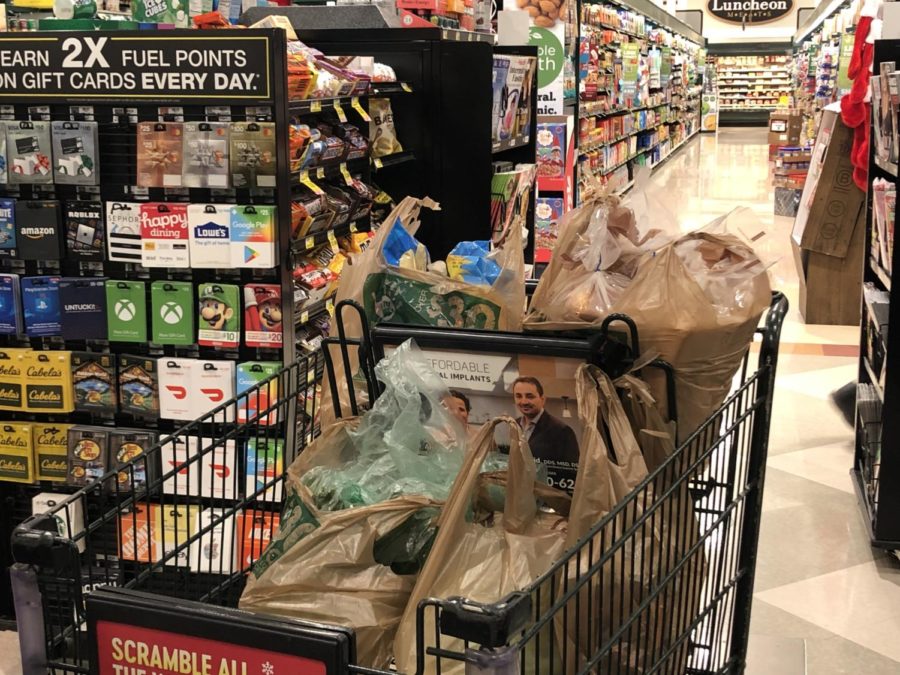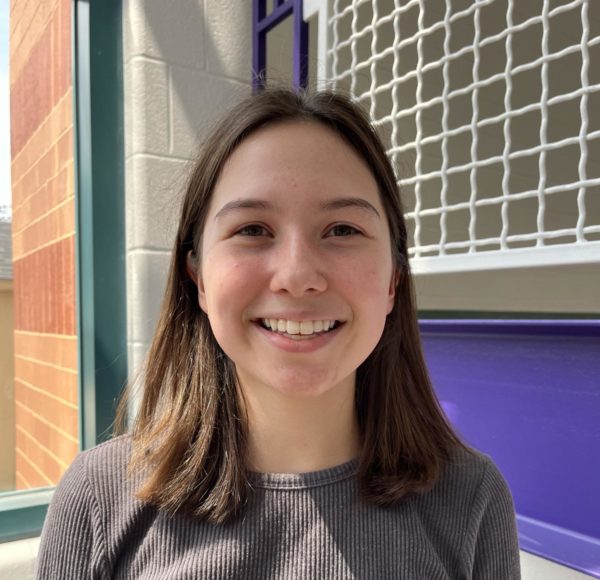The cost of plastic: Fairfax County imposes new disposable plastic bag tax
According to Litter Free Virginia, 3 billion plastic bags are used in Virginia every year, with each person using an average of 320 bags a year. ~
December 19, 2021
Grocery shoppers gather up old totes and reusable bags—normally hidden deep within pantries—in preparation for Jan. 1. when there will be a new five-cent bag tax. The tax will apply to all disposable plastic bags provided by convenience stores, grocery stores and drugstores in Fairfax County.
“A small fee on plastic bags is an opportunity for residents to look at their habits while providing the County with avenues for environmental cleanup, education and access to environmentally friendly alternatives,” Fairfax County Board of Supervisors Chairman Jeffery McKay said.
The disposable plastic bag tax ordinance was passed by the Fairfax County Board of Supervisors on Sept. 14 by a nine to one vote. The action by Fairfax County follows moves made by several other cities, counties and states throughout the country that have enacted taxes or outright bans on disposable plastic bags. The local ordinance was made possible by a 2020 Virginia law that allowed cities and counties to impose the five-cent tax.
“[We] saw that [bag taxes] had been very successful in other parts of the country [so] that’s why as a Board we decided to move forward with the plastic bag tax,” Braddock District Supervisor James Walkinshaw said.
The disposable plastic bag tax may come as a surprise to many consumers who visit their local retailers after Jan. 1 because there have been few public announcements and relatively little media coverage about the new ordinance, but some residents of Fairfax County welcome the change.
“I’m hoping that [the tax] will be more of a plastic awareness [effort] on how to reduce our dependency on plastic,” science teacher Michele Gates said. “I’ve been reusing grocery bags for years.”
Since plastic grocery bags were introduced in the U.S. in 1979, they have occupied an increasing amount of space in landfills. According to the most recent figures from the U.S. Environmental Protection Agency, only 10% of plastic bags, sacks and wraps are recycled each year, while more than 3 million tons are put in landfills.
“I’m happy that society is taking a step toward being more environmentally friendly,” sophomore Thea Brown Hargrove said. “I’m definitely going to use reusable bags now and I’m sure many of my peers will as well.”
The tax will affect students’ independent shopping habits. Students will have to take into consideration the cost of each plastic bag or remember to bring their own reusable ones.
“When a product is free of charge and one can take as many as they deem necessary, it encourages us to take more than we need while convincing us that it is infinitely replaceable at no cost,” Sully District Supervisor Kathy Smith said. “This line of thinking may have been understandable during the early years of plastic bags, but we know far too much at this point [to] carry on with the status quo.”
The only Fairfax County supervisor to vote against the ordinance was Springfield District Supervisor Pat Herrity.
“We’re in the middle of a pandemic [with] rising inflation, rising gas prices [and] real estate tax has increased,” Herrity said, “and the tax would disproportionately impact lower-income households.”
In contrast, the Fairfax County supervisors who voted for the ordinance all emphasized the positive effects of the disposable plastic bag tax.
“During several clean-up events around Lee District, the number-one item volunteers and I came across was plastic bags,” Supervisor Rodney Lusk said. “Major grocery stores such as Amazon Fresh, Trader Joe’s and Aldi had banned plastic bags before this legislation was passed [and] residents can avoid the tax entirely by using reusable bag options.“
By imposing a tax, some supervisors hope it will discourage shoppers from overusing plastic bags which they believe will help reduce the number of plastic bags found in streams and waterways.
“I see [the disposable plastic bag tax] as an important step, and a win-win to protect our natural resources for generations to come,” Providence District Supervisor Dalia Palchik said.



